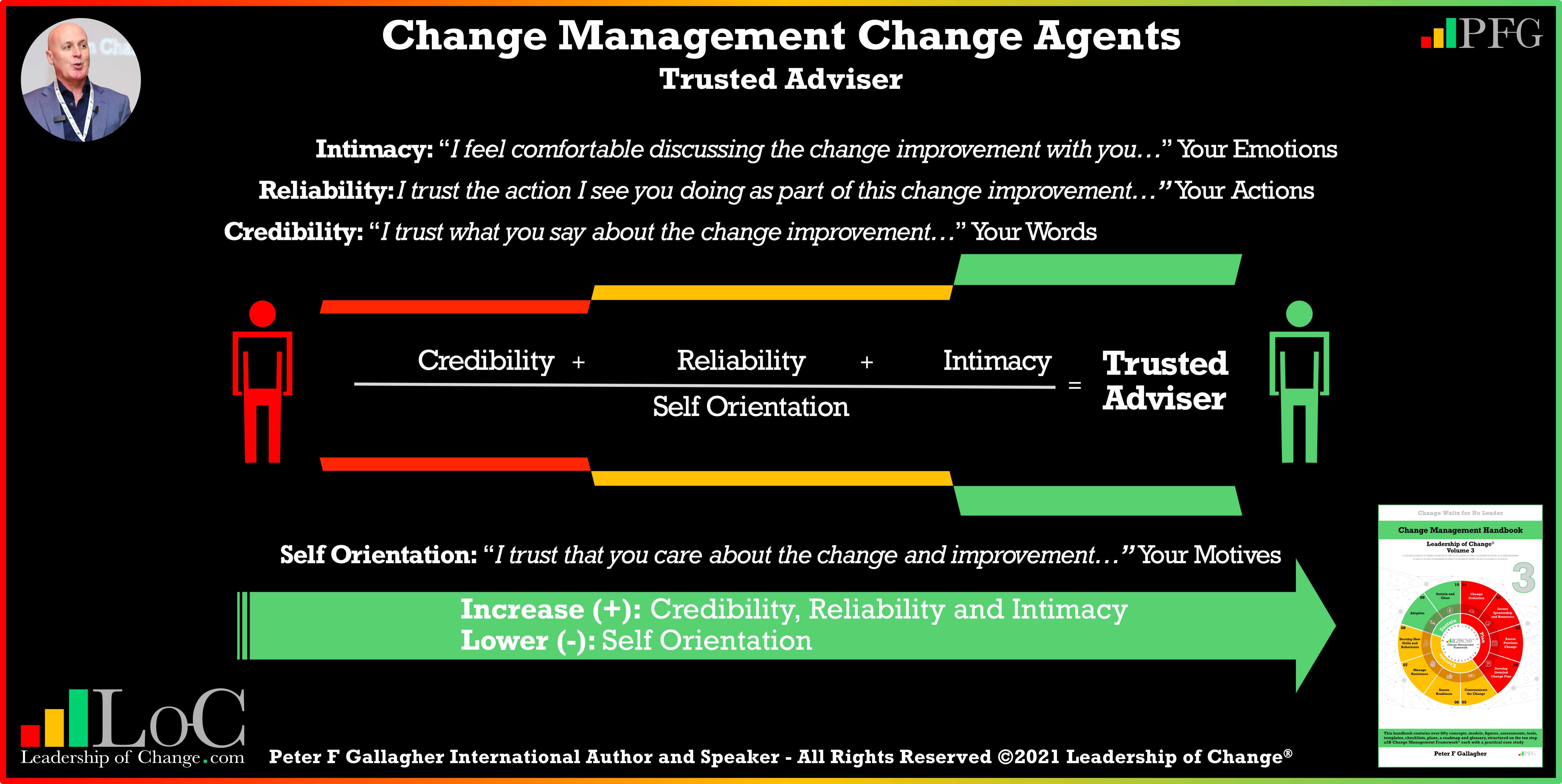Oct29

One of the most important considerations for a change practitioner is that, without trust you will not achieve improvement or change through people. As a change agent, you are selling a change to the organisation. The person you engage with will ask one key question when you introduce yourself, “can I trust you?” The Trust Equation provides a model to show the key elements of a change agent as a Trusted Adviser. The objective is to build trust by increasing credibility, reliability, intimacy and to lower self-orientation. “Without trust you will not change the employees or the organisation” The success of any change or improvement depends heavily on the relationship between the change agent, the sponsor, leadership team and the employees of the organisation. It matters less if the organisation appoints internal change agents or hires outside consultants. To be successful, change agents develop relationships built on trust and commitment. Again, getting the right person with right behaviour the required growth mindset is extremely important. Characteristics and Traits The success of any change or improvement depends heavily on the relationship between the change agent, the sponsor, leadership team and the employees of the organisation. It matters less if the organisation appoints internal change agents or hires outside consultants. To be successful, change agents develop relationships built on trust and commitment. Again, getting the right person with right behaviour the required growth mindset is extremely important. Other characteristics and traits include: ~ People Skills: Change is about people. Change adoption and success will be achieved when employees embrace it. ~ Credibility: Must have credibility within the organisation, both in knowledge and character to lead by example. ~ Tenacity: Not giving up easily when progress is strained, being patient yet persistent. ~ Listening Skills: Ability to explore different employee perspectives and take them into account when looking for solutions. ~ Good Communicator: Ability to communicate to people in a non-threatening manner and define what is expected of them within a diverse culture. ~ Positivity: Using positivity when communicating with employees can make a huge positive impact on their emotional well-being and their future adoption of the change. "Without trust you will not change people"
Keywords: Leadership, Change Management, Business Strategy
 The Corix Partners Friday Reading List - February 27, 2026
The Corix Partners Friday Reading List - February 27, 2026 What Leaders Should Be Losing Sleep Over (But Aren’t)
What Leaders Should Be Losing Sleep Over (But Aren’t) Energy System Resilience: Lessons Europe Must Learn from Ukraine
Energy System Resilience: Lessons Europe Must Learn from Ukraine HR Is Designed to Maintain. Succession Planning Demands It Transform.
HR Is Designed to Maintain. Succession Planning Demands It Transform. AI and Embedded Connectivity: A New Era of Smart Devices
AI and Embedded Connectivity: A New Era of Smart Devices